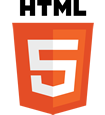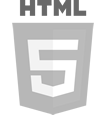Open Source vs Proprietary CMS. Which Is Best?
Open Source vs Proprietary CMS. In most recent years content management systems or CMS have become most popular for most businesses to mange their own websites. With their popularity a vast amount of paid and free CMS have become available. This article covers the basics on both types, which is best for your purpose and which one will come with on-going fees. Which is better, Free Open Source of Paid Proprietary CMS?
Open Source Free Content Management Systems
You will find that most open source or free content management systems don’t come with in-going fees unless your website developer manages the website for you. All content management systems need to be looked after, if you don’t have the time then its best to ask your website developer to manage the system for you.
Open source content management systems are free to download, fee to use and you only pay for someone to design your website, possibly populate it with content and implement the features or functions that you want. There are no limitations to what an open source content management system can do and in most cases possibly better than a paid content management system as open source CMS are updated by a community of developers on a daily basis.
With open source content management systems you own the website, free to do what ever you like and not limited to what can be done. Most of the popular open source frameworks have thousands of free and paid plugins that can be installed to further improve the functionality of your website.
If you are using the top 3-4 open source content management systems, they will also have a large community of designers, developers, plugin and theme creators which make it easier for you to achieve your desired result. The most commonly used open source content management systems include Joomla, WordPress and Magento to name a few. Furthermore due to open source being free for anyone to use, the content management system is not limited to be managed by one website design firm. With access to your admin and hosting account any website designer can help you manage your website.
When it comes to security, all websites are vulnerable to attack, no matter if they are paid or free, managed by the website owner or by a website design company. Most open source CMS come with free security options to help you keep the website updated to the latest version and you can also purhcase advanced protection tools such as WordFence, RS Firewall or Astra. Most of the security extensions will come with a yearly subscription and cost less than $100 per year, they are easy to update and generally hassle free.
Reasons to choose an open source content management system;
- Free to download, no monthly fees to use the CMS
- Liberty to move your website from one design firm to another
- Vast community of developers, plugins and themes available
- Most developers will know how to use open source frameworks
- Large selection of extensions available, free and paid
The downside of using an open source CMS includes;
- You or your website designer is responsible for managing the website and keeping it secure.
Open Source vs Proprietary CMS in the above we covered open source which gives you the freedom to do what you like with your website, not being limited to who helps you with management and updates and no monthly fees to use the system seems make it a great choice.
Proprietary Paid Content Management Systems
Paid or proprietary content management systems are very similar to open source in the way that they work though a proprietary content management system has been built by a company for the sole purpose of selling a yearly license to use their content management system. In most cases a proprietary based content management system license is based on how many pages you will be using, how much space is being used up on the server and what type if features and functions you would like to choose from. The monthly fee for a paid content management system can range from $20 USD to $1000 USD per month depending on the type of services they offer.
Choosing a proprietary content management system does not mean that the owner of the system manages your website, it basically means that you are paying to use their CMS on a monthly basis, very similar to renting a website that you don’t own, once you stop paying you loose the website, its content and anything that resides in the website.
The owner of the CMS will have systems and procedures in place to keep their system updated, free of bugs and secure. In most cases this is true though many companies that build content management systems sometimes get lazy or for one reason or other don’t keep their systems up to date which can sometimes be devastating for hundreds or thousands of businesses if they all get hacked into in one swoop.
If you are thinking of selecting a paid content management system, be sure to do your research into the company that sells the license to you. Check that they have a proven track record in keeping their framework updated and do some research into the framework its self. Check that there are no limitations to what can be done and if game enough call one of their clients and ask if they have had any problems with the CMS in the past. Google searching the name of the CMS can also bring up a few reviews or discussions on the systems.
Reasons to choose a proprietary content management system;
- No need to worry about plugin or CMS updates or security patches
The downside of using an open source CMS includes;
- Limitations to what you can do with your website
- Limited to using one website design form, can not move site away
- Limited to the choice of extensions, plugins or features. This does not go to say that the paid CMS will not do what you want, just limited to what the framework has to offer in the way of add-ons.
Open Source vs Proprietary CMS in this last part of the discussion we covered Proprietary content management systems. The main point would be least amount of management of security and framework updates. Keeping in mind that for an open source CMS your web developer can manage these for you though the paid CMS will have this one benefit.
Need Help or More Information? Contact Us Today
For more information on Open Source vs Proprietary CMS visit our FAQ’s page or contact us on (03) 9017 5575. You can also submit an online enquiry via our Contacts page.













